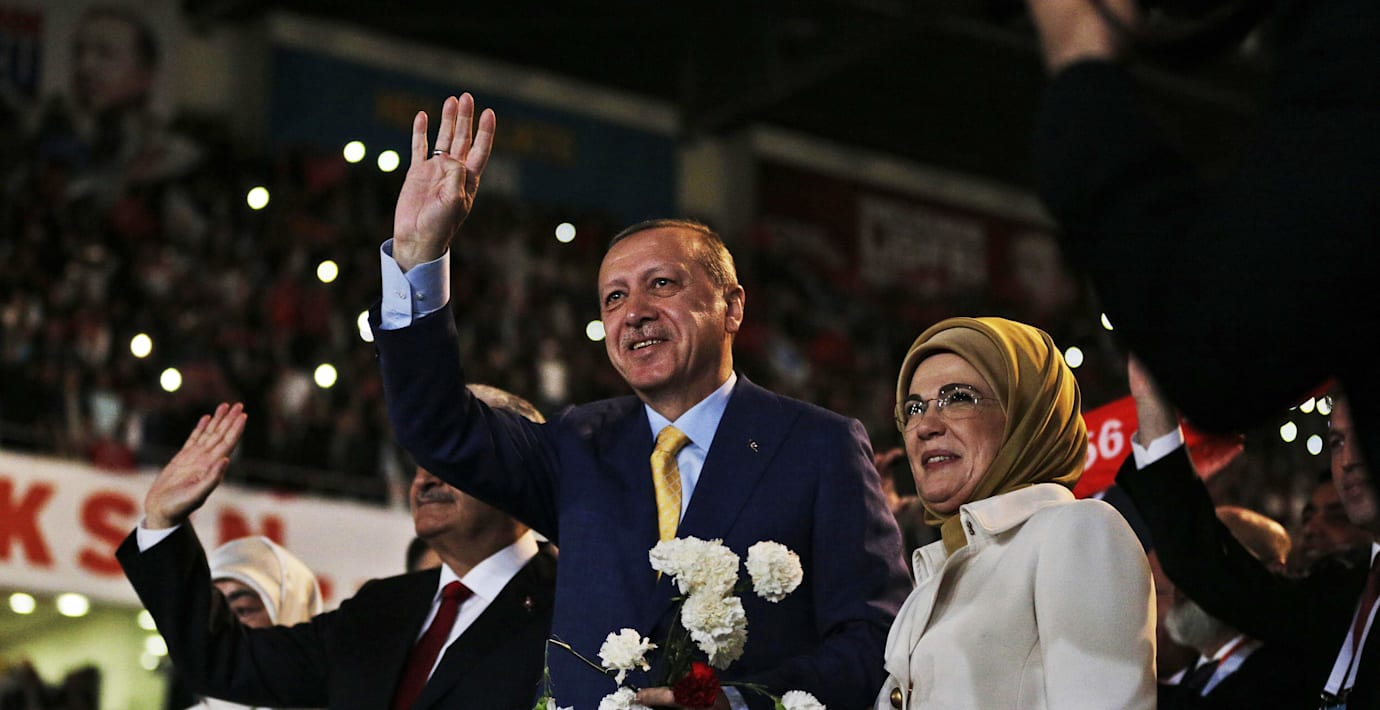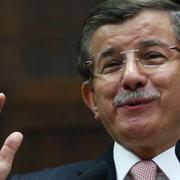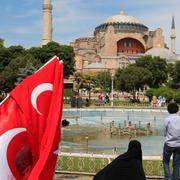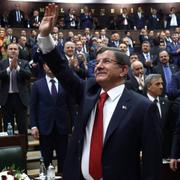
Klart: Erdogan blir återigen partiledare för AKP
Turkiets president Recep Tayyip Erdogan är återigen partiledare för regeringspartiet AKP. Han valdes på söndagen och tar över efter premiärminister Binali Yildirim, skriver AFP. Erdogan ledde partiet mellan 2001 och 2014, men tvingades lämna ordförandeposten när han valdes till president.
Folkomröstningen i april, där Turkiets grundlag ändrades, ledde till att Erdogan kunde återvända som partiordförande. Enligt AFP var han den enda kandidaten i ordförandevalet.
– Genom att bli AKP:s ledare vill Erdogan säkerställa att han har tillräckligt många förtrogna i parlamentet för att blockera alla försök till att ställa honom inför riksrätt, säger Abdulkadir Selvi, kolumnist på tidningen Hürriyet, enligt TT.
bakgrund
Recep Tayyip Erdoğan
Wikipedia (en)
Recep Tayyip Erdoğan (Turkish pronunciation: [ɾeˈd͡ʒep tɑjˈjip ˈæɾdo(ɰ)ɑn]; born 26 February 1954) is the current President of Turkey, and has held the position since 2014. He previously served as the Prime Minister of Turkey from 2003 to 2014 and served as the Mayor of Istanbul from 1994 to 1998. He founded the Justice and Development Party (AKP) in 2001 and led it to three general election victories in 2002, 2007 and 2011 before standing down as leader upon his election as President in 2014. Originating from an Islamist political background and as a self-described conservative democrat, his administration has overseen social conservative and liberal economic policies. His political agenda and ideals are often referred to as Erdoğanism.
Erdoğan was a semi-professional footballer playing for Kasımpaşa before being elected as the Mayor of Istanbul from the Islamist Welfare Party in 1994. He was stripped of his position as mayor, banned from future political office, and imprisoned for four months, for the recitation of a poem in a political speech in 1998 after which he abandoned openly Islamist politics and established the moderate conservative AKP in 2001. The AKP won a landslide victory in the 2002 general election, with the party's co-founder Abdullah Gül becoming Prime Minister until his government annulled Erdoğan's ban from political office. Erdoğan subsequently became Prime Minister in March 2003 after winning a seat in a by-election held in Siirt.
As part of his '2023 vision' for the centenary of the Turkish Republic, Erdoğan's government oversaw accession negotiations for Turkey's membership of the European Union, an economic recovery following a financial crash in 2001, changes to the constitution via referendums in 2007 and 2010, a Solution process with Kurdish militants, an allegedly Neo-Ottoman foreign policy and investments in infrastructure that included new roads, airports, and a high-speed train network. With the help of the Cemaat Movement led by preacher Fethullah Gülen, Erdoğan was able to curb the political power of the military through the controversial Sledgehammer and Ergenekon court cases. In late 2012, his government began peace negotiations with the Kurdistan Workers Party (PKK) to end the ongoing PKK insurgency that began in 1978. The ceasefire broke down in 2015, leading to a renewed escalation in conflict. In 2016, a coup d'état was unsuccessfully attempted against Erdoğan and Turkish state institutions. This was followed by purges and an ongoing state of emergency.
Nationwide protests against the perceived authoritarianism of Erdoğan's government began in May 2013, with the internationally criticised police crackdown resulting in 22 deaths and the stalling of EU membership negotiations. Following a split with long-time ally Gülen, Erdoğan brought about large-scale judicial reforms that were criticised for threatening judicial independence, but which Erdoğan insisted were necessary to purge sympathisers of Gülen. A US$100 billion government corruption scandal in 2013 led to the arrests of Erdoğan's close allies, with Erdoğan himself incriminated. Erdoğan's government has since come under fire for alleged human rights violations and crackdown on press and social media, having blocked access to Twitter, Facebook and YouTube on numerous occasions. Erdoğan's government lifted the bans upon court orders. Journalists and opposition politicians have criticised his authoritarian tendencies; more journalists have been incarcerated in Turkey than in any other country, including North Korea. Political commentators and opposition politicians have stated that Erdoğan's unceasing efforts at broadening his executive powers while also minimizing his executive accountability amount to the "fall of Turkish democracy," and the "birth of a dictator," while Erdogan supporters contend that Turkey remains as a majoritarian democracy, claiming that the government's disputed April 2017 elections were legitimate.
Omni är politiskt obundna och oberoende. Vi strävar efter att ge fler perspektiv på nyheterna. Har du frågor eller synpunkter kring vår rapportering? Kontakta redaktionen


